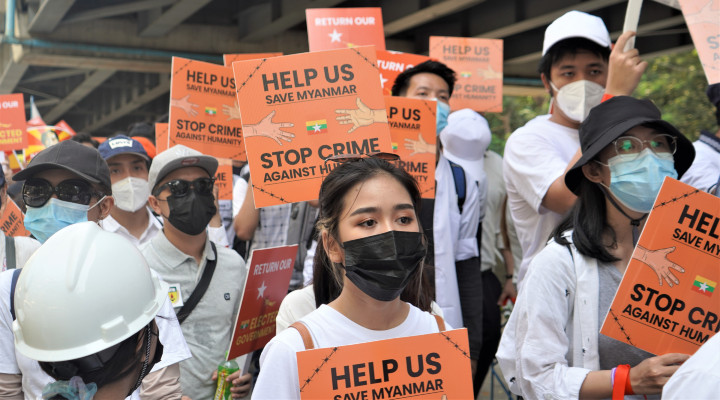Back in January, the UK’s Business and Human Rights Resource Centre (BHRRC) revealed that it had identified 198 cases of labour and human rights violations affecting at least 104,000 workers in Myanmar’s garment sector. Many of the documented allegations occurred in factories linked to big fashion brands including Zara-owner Inditex, Bestseller, Primark and H&M. The most common allegations were reduced wages and wage theft (56 per cent), followed by unfair dismissal (44 per cent).&
ent).
Nearly one quarter of the allegations related to repression of the right to freedom of association, though the BHRRC also identified allegations of inhumane working conditions, violence, arbitrary arrest and even killings.
The BHRRC linked at least 37 fashion brands and retailers to factories where violations took place, either as current or former buyers. Inditex was linked to the most cases of alleged abuses (15 cases), followed closely by H&M, Bestseller and Primark (13 cases each).
Natalie Swan, head of labour rights at BHRRC, noted that if a company were to undertake a risk assessment of Southeast Asia in terms of supply chain issues, Myanmar would be right at the top of that list.
“For brands operating in Myanmar, there is a responsibility to undertake a heightened level of due diligence, if that company wishes to source from that area,” she told Inside Retail.
Two years after the military coup, she said there has been a steady regression of workers’ rights and companies are simply not doing enough to safeguard the welfare of their workers.
“Companies need to set up a transparent and sustainable due diligence mechanism that is accountable to civil society, and of course to workers on the ground and their representatives too,” she stressed.
No end in sight
The BHRRC hasn’t seen any change in the number of allegations around workers rights abuses, wage theft, health and safety infringements and political threats to workers in relation to exposure from the military junta.
What is most disconcerting about the current situation is that when allegations of worker abuse are forwarded to companies, they are mostly brushed aside after a cursory check with the factory owner.
Trade unions are practically non-existent in Myanmar, which Swan said is a key barrier to change.
“If you look back to the last 10 years or so in Myanmar’s initial opening up of the economy, there were opportunities for trade unions to develop, especially in the garment industry. Trade unionists were also integral for the fight for democracy in the country,” she noted.
Although the current situation is pretty dire, Swan said that there is a “latent union landscape” in the country, and leaders and activists are doing their best to preserve workers’ safety and anonymity.
“All workers have a voice, and brands need to find the right route to tap into maintaining this dialogue and this is absolutely key in my opinion. In the case of a brand taking the exit route, it’s also imperative that workers can be contacted to safeguard their rights,” she added.
What’s next?
According to the BHRRC, factory owners are in alignment with the military junta, and with fashion brands also relying on factory owners and third parties to perform due diligence, the cycle of workers abuses and infringements look set to continue.
“I would say that the key is to monitor due diligence for its effectiveness. Transparency is absolutely vital. Accountability is key. It’s all about constantly updating, evaluating and being open,” Swan said.
She feels it’s time for brands to start paying workers the wages they deserve, and not wait for governments to introduce minimum wage requirements. She feels this paradigm shift needs to happen in markets like Myanmar, Bangladesh, India, Sri Lanka and Cambodia.
“Brands still drive towards the lowest price for profitability, and in these countries, there is a shrinking of civil society space. It is time for brands to be responsible and eliminate risks in their supply chains and have better regulations in place,” she concluded.







